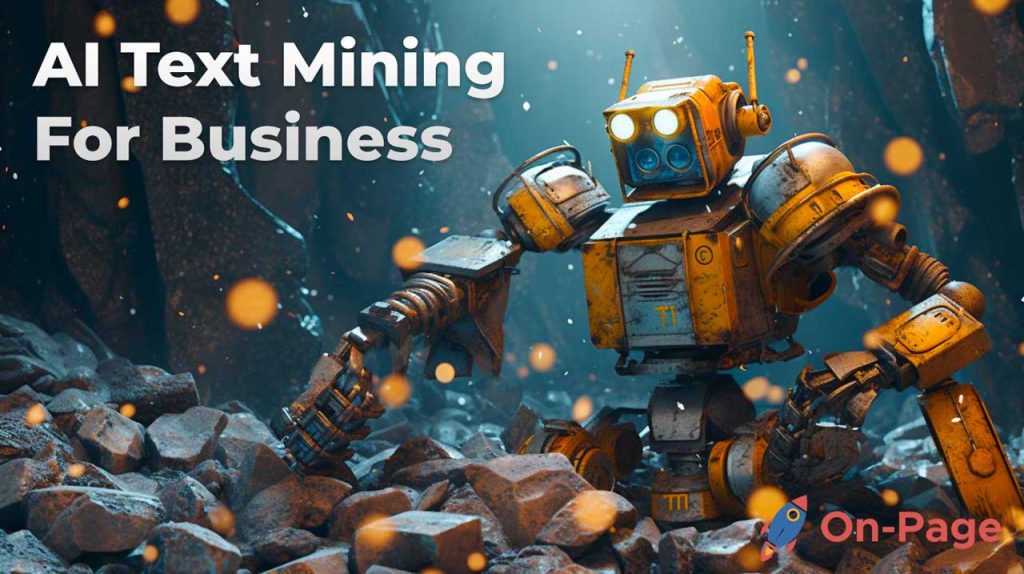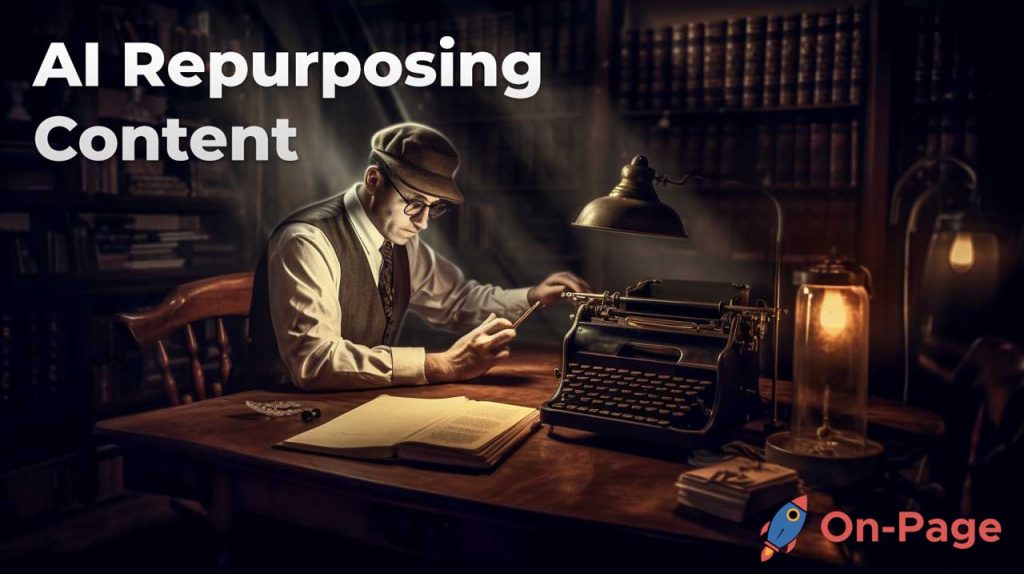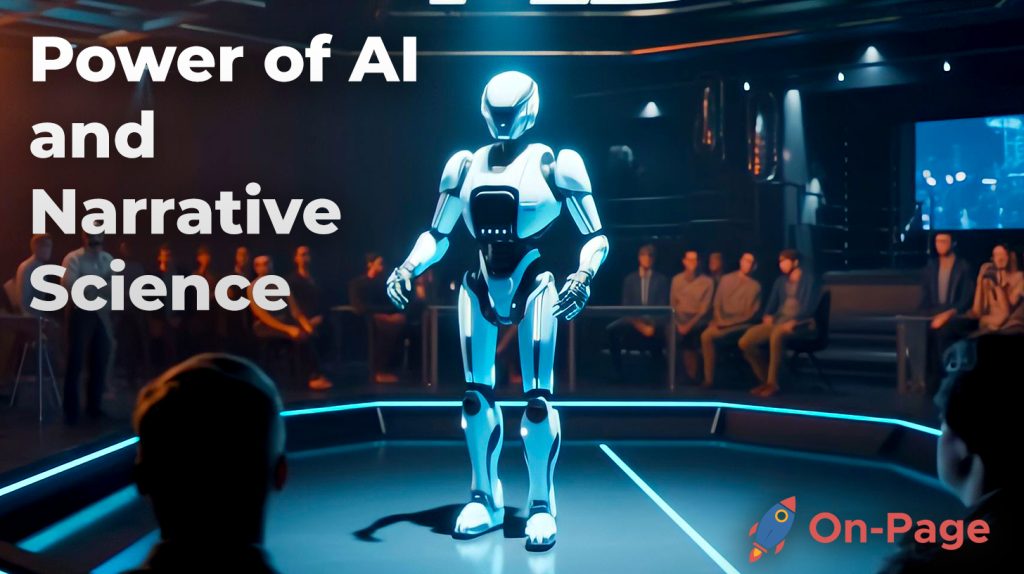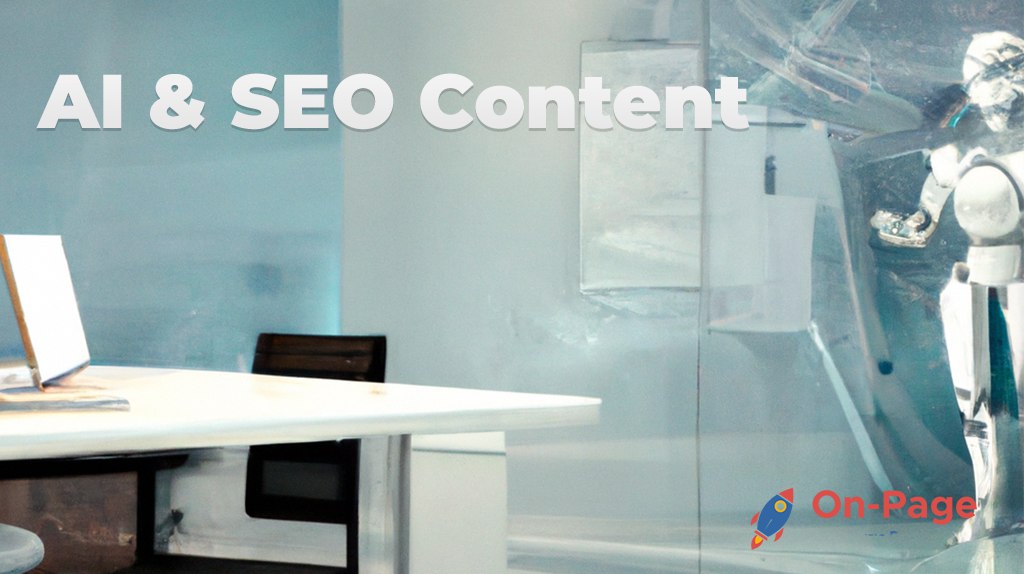Imagine discovering a hidden treasure chest that can unlock your website’s full potential, boosting your rank in search results and increasing user engagement like never before. Well, thanks to AI-powered content auditing, this is no longer a fantasy but a reality. Dive into the world of automated content quality checks and learn how embracing the capabilities of the best SEO optimization tool will revolutionize your online presence.

AI-powered content auditing can automate the process of collecting and analyzing metrics, as well as categorizing pages, saving time and effort for website managers. By using artificial intelligence (AI) algorithms, content managers can easily identify outdated and under-optimized content and personalize and target website visitors more effectively, leading to improved search engine ranking and increased conversions. Studies suggest that AI has the potential to improve content personalization and audience targeting by up to 60%.
The Pursuit of Effective Content Auditing
Creating a successful content marketing strategy is not an easy task, but it is extremely important. The ultimate goal of any content marketing strategy is to drive traffic and generate leads that can then be converted into sales. However, to achieve that goal, it is essential to create high-quality content that resonates with the audience. To ensure that the content meets the desired standards, regular auditing and quality checks must be implemented.
A content audit is a process where all published content is evaluated based on criteria such as relevance, accuracy, currentness, and consistency. This process helps identify top-performing pages so that they can be optimized or updated as needed. However, manually conducting a content audit can be a tedious and time-consuming task. As such, companies are looking toward AI-powered tools to streamline this process and make it more efficient.
Imagine you manage a blog with hundreds of posts covering different topics. Conducting a manual audit would require going through each post one after the other and keeping track of what needs updating and what should stay. This process would likely take days if not weeks to complete. With AI-powered content auditing tools, this process can be done within a few hours with greater accuracy.
According to research conducted by Forbes Insights, 60% of executives say automation has resulted in faster decision-making within their organizations. There’s no doubt automation makes things easier by eliminating repetitive tasks and allowing more focus on bigger-picture issues.
Content freshness is essential for high search engine rankings. This is why most businesses conduct frequent audits of their existing content to determine what needs improving or removal.
There are four primary categories under which most articles fall:
- Keep it fresh (by updating it)
- Update it entirely (because it’s outdated)
- Discard or redirect it (due to duplicates)
- Consolidate with others (because they overlap)
Performing regular content audits is standard practice that can help websites achieve their goals and keep content valuable, up-to-date, and accurate.
Content auditing can be viewed in different ways, depending on your point of view. Some marketers see it as an opportunity to cull outdated content that could reflect poorly on their brand while some argue it’s better to consolidate older posts into comprehensive guides that will rank better than other sites with only one or a few similar articles.
Content creators can find multiple benefits from performing a content audit, including pinpointing the most successful topics to focus on going forward. By having all your content audited, you’ll have much more comprehensive data to work with when making adjustments or deleting any underperforming pages.
Regular content auditing is essential for maintaining the quality and relevance of your website’s content, but manually conducting an audit can be time-consuming. AI-powered tools like On-Page.ai can streamline the process and provide more accurate results in a shorter time frame, allowing businesses to focus on bigger-picture issues and make faster decisions. Through regular content auditing, companies can identify top-performing pages, update outdated content, and ultimately drive more traffic and generate leads that can then be converted into sales.
Now that we understand the importance of auditing and updating our content regularly, let’s discuss how On-Page.ai assists in automating the process further.
How Artificial Intelligence Can Help with Content Auditing
Artificial intelligence is transforming the way industries operate by making tasks faster and more efficient than ever. The same goes for improving content quality through AI-powered automated audits and checks. With advancements in machine learning and natural language processing (NLP), AI today excels at recognizing patterns in text data sets and identifying inconsistencies that humans might overlook. By leveraging these techniques, AI-powered tools make performance tracking and optimization easier and effortless.
Think of an AI-powered content auditor as your personal assistant who works tirelessly day in and day out, monitoring how search engines interact with your website and letting you know what needs your attention due to changes in search algorithms.
Suppose you administer a health blog that frequently publishes posts aimed at various medical conditions. An AI-powered content auditor can automate a comprehensive review of every article. It will help identify opportunities for keyword optimization such as Latent Semantic Indexing (LSI) keywords with the potential for better rankings.
To prove their worth in enhancing digital marketing campaigns, AI-powered tools are becoming increasingly popular among marketers. According to a recent survey by Demand Metric, 60% of marketers believe that AI has the potential to improve content personalization and audience targeting.
AI-powered tools like On-Page.ai assist in three primary ways in content auditing:
- Data collection and analysis which reveal deficiencies or gaps
- Identifying recommended improvements and steps to close gaps
- Optimizing individual pages and the entire website, leading to desired outcomes or goals
Now that we have seen some crucial benefits put forward by AI-driven content auditing, let’s now discuss some of the challenges involved in implementing these tools.
Gathering Information from Multiple Sources
One of the biggest challenges when conducting a content audit is gathering all the necessary information from various sources. This can involve analyzing website performance metrics, conducting keyword research, and reviewing social media platforms, among others. Without precise and accurate data to aid in decision-making, your content auditing strategy may not be as effective as you’d hope. Fortunately, AI-powered content auditing tools can help collect vast amounts of information from multiple sources efficiently and accurately.
For instance, imagine that you are trying to identify gaps in your current content marketing strategy. With traditional methods, you would have to manually sift through heaps of data scattered across different databases, spreadsheets, and online platforms. This would take an incredible amount of time and you’ll likely miss essential information hidden deep within the data pool.
Benefits of Using AI for Data Gathering
AI-powered content auditing tools employ machine learning algorithms that comb through large volumes of data and present insights in a single dashboard. By presenting consolidated views of the data in a simple interface that provides context with visual representation, On-Page.ai‘s technology minimizes errors during analysis and makes it easier to identify growth opportunities.
Some argue that automating the collection process takes away nuanced judgment calls that human analysts make when poring through data sets by themselves. They contend that while tools like On-Page.ai can streamline processes by providing high-level overviews of critical data points quickly and conveniently, there is still the possibility of missing some essential actionable insights without human involvement.
However, using AI-powered content auditing is like having an army of data analysts continuously providing analysis of the most up-to-date data. It’s like having a team of experts at your fingertips, quickly delivering key insights so that marketers can act on them and produce better content outcomes.
Analyzing Information and Identifying Gaps in Strategies
After gathering all the necessary information from multiple sources, the next important step is analyzing the data. You need to identify what does and doesn’t work in your existing content marketing strategy and identify gaps in your users’ needs or desires. AI-powered content auditing tools can help you conduct in-depth analysis so you can create an optimal content marketing strategy.
The use of AI-powered tools for analyzing large datasets provides an opportunity to derive valuable insights that may not always be obvious. While traditional methods might overlook certain patterns or trends due to manual human intervention factors such as cognitive bias or limited cognitive capacity, algorithms powering these tools don’t have those limitations allowing for broader analysis.
However, critics argue that relying solely on machine learning algorithms to analyze massive amounts of data can lead to over-reliance on hard numbers. Simply relying on automated metrics without considering other crucial aspects such as user feedback and nuances gleaned from monitoring social media conversations can pose challenges to developing truly effective strategies. The key here would be to strike a balance between quantitative and qualitative data when using artificial intelligence-powered tools for content auditing purposes.
How AI Helps with Data Analysis
Effective content auditing through smart technologies like On-Page.ai’s SEO tool is like having a skilled detective on your side. By analyzing all available data, the AI-powered tools allow you to unravel complex patterns and highlight previously unseen correlations across vast amounts of information that would be impossible to process quickly and manually.
Here are a few reports supporting AI’s key role in data analysis:
- According to a survey by BrightEdge, 37.5% of marketers believe that AI can significantly help with content optimization and performance tracking during the content auditing process.
- A separate survey conducted by Demand Metric found that 60% of marketers think AI has the potential to enhance content personalization and audience targeting, resulting in more effective content strategies during audits.
- MarketMuse, an AI-powered topic modeling software, has reported that using its platform for semantic analysis and content brief generation led to an approximate average increase of 30% in organic search traffic for optimized posts after conducting a content audit.
Benefits of an AI-Driven Content Auditing Strategy
Artificial intelligence has been transforming content auditing in various ways. AI-powered content auditing tools offer a range of benefits that can help businesses achieve their goals and ultimately improve their bottom line.
For instance, with AI-driven content auditing, marketers and website managers can analyze large datasets quickly and accurately. Instead of manually collecting and analyzing metrics such as organic search traffic, bounce rate, click-through rate, backlinks, and social shares, AI-powered tools conduct a thorough analysis within a short period.
In today’s fast-paced digital landscape, speed is everything. By using an AI-driven content auditing strategy, businesses can automate the metrics process, freeing up valuable time for website managers to focus on other important tasks such as creating new content or optimizing existing pages.
Some may argue that relying solely on AI for content auditing can cut off the human touch that is necessary for good marketing strategies. However, it’s essential to point out that the technology is not replacing the human element but rather complementing it. The data collected by these tools only serves to inform marketers about what is and isn’t working in their current content strategy.
Consider AI-powered content auditing like driving a car. With traditional content auditing methods, you’d be driving without GPS or any map at all. With AI-powered tools as your co-pilot, you have access to real-time data on how well your strategy is performing and where you need to go next.
Increased Efficiency and Improved Outcomes
Implementing an effective AI-driven content audit strategy can positively impact key performance indicators (KPIs), including:
- Organic traffic
- Conversions
- Bounce rate
- Dwell time
- Click-through rate
By employing advanced algorithms, AI content auditing tools identify relevant keywords and phrases that web crawlers look for when ranking pages. This information can help marketers optimize their web content to improve their search engine rankings, driving more organic traffic to their website.
Additionally, with the automation of the content auditing process comes an increased level of efficiency. Marketers are able to focus on optimizing their site’s performance by improving page load time or creating new keyword-rich content without expending resources on data collection and sorting.
On the other hand, some may argue that implementing AI-driven content auditing may decrease creativity in blog writing and take the human touch out of personalizing well-written articles. However, adopting an AI mindset means that humans (writers/marketers) spend less time on tedious data analysis and more on creativity, interpreting results and adding insights to blogs.
Consider AI-powered content auditing like having a personal assistant who takes care of your mundane tasks, freeing you up to focus on what you do best. You’re able to collaborate with highly advanced machine learning technology that aids in identifying gaps within your strategy.
Challenges in Implementing AI-powered Content Auditing Tools
Implementing AI-powered content auditing tools come with various challenges. One of the significant barriers is the cost of acquiring and implementing the technology. Investing in a quality content auditing tool that will efficiently audit your web pages may not come cheap. Therefore, website owners without substantial financial resources to put toward SEO tools may find it challenging to employ an AI-based system to manage their content.
Another challenge that you might face in implementing AI-powered content auditing tools is finding the right tool for your business needs. Every website is unique, and finding a suitable tool that fits your company’s objectives can be overwhelming, especially considering the vast number of SEO tools available in today’s market. When selecting a tool, consider its flexibility, customizability, and ease of use.
Furthermore, AI-driven content auditing requires a lot of resources to stay competitive in today’s market. Many companies do not have enough staff dedicated solely to SEO efforts or other marketing campaigns related to website development/management. In this case, outsourcing these efforts can prove costly.
You realize that after investing a significant amount of money in a particular tool, you haven’t seen much improvement in your website’s ranking or traffic. This is when it’s necessary to re-evaluate your current strategy and determine if changes need to be made based on the feedback gathered from using an AI-driven content auditing tool.
Despite these challenges, we believe that the benefits outweigh any concerns or obstacles you might encounter during implementation and use.
Some argue that relying too heavily on such technology can create lazy habits among professionals who manage websites daily. Still, others point out that passing tedious manual efforts off to automation can result in focusing on more important tasks beyond content auditing.
Selecting the Right Tool and Overcoming Limitations
Selecting the right tool is critical to the success of your website’s SEO strategy. When choosing an AI-powered content auditing tool, it’s crucial to consider your budget, goals, and company objectives. Finding a tool that fits your needs requires researching different options, such as On-Page.ai, MarketMuse, SEMrush, and others.
Once you’ve selected a tool that fits your needs, implementing it effectively is also essential. Organizations must train their staff on how to use these tools accurately. Staff should periodically review the results provided by these tools and ensure they’re implemented correctly.
It’s also important to understand that even with AI-powered content auditing in place, there is no substitute for good content creation. All of the audits conducted by these tools rely on quality content to provide accurate analysis and feedback. You must create high-quality content that engages users and keeps them coming back for more.
Using AI-powered content auditing tools is like hiring a team of specialists who work around the clock to assess your website’s performance continuously. As with any team of professionals, communication between them and other members of your organization is vital. When implementing AI-powered content auditing tools, make sure everyone involved in your website management efforts is aware of the system in place and how they can contribute toward its success.
Overall, AI-driven content auditing presents many benefits for SEO efforts when implemented efficiently and strategically. Despite some challenges that may arise during implementation and use, selecting the right tool such as On-Page.ai for your needs can help improve website performance and attract more traffic to your site.
FAQs
1. In what ways can AI help identify and address issues related to accessibility and diversity in online content?
AI has the immense potential to help create content that is accessible and diverse for all users. With AI-powered content auditing, businesses can identify issues related to accessibility and diversity quickly, helping ensure that their online content is compliant with regulations while reaching a wide range of audiences.
In terms of accessibility, AI algorithms can analyze web pages to identify common accessibility issues such as images without alt tags, poor color contrast, and unreadable text. According to the World Health Organization, globally, around 1.3 billion people experience significant disability. Thus, it is crucial to create accessible digital content. Accessibility testing tools powered by AI can rapidly scan lower-level code for accessibility violations.
When it comes to promoting cultural and linguistic diversity in online content, AI can help understand the context of words and phrases in different cultures and language regions. This analysis can help adapt marketing campaigns or website user interfaces fitting localized dialects and idioms. As per Common Sense Advisory Research, 76% of web users prefer buying products in their native languages. Besides being more inclusive to users around the world, increased translation services contribute positively toward SEO ranking.
Furthermore, AI can provide insight into the demographic representation in an organization’s visuals like photos used in e-commerce stores. The algorithm might detect biases in gender representation across photos utilized on a website and suggest relevant alternatives.
AI-powered content auditing helps businesses deliver more diverse and accessible online content through automated analysis offering more objective evaluations regarding optimizing the experience for everyone without much manual supervision.
2. How can AI be used to improve content auditing processes?
AI technology has the potential to revolutionize content auditing processes by automating tedious tasks and improving accuracy. With AI-powered content auditing, businesses can save time and money while ensuring high-quality content.
One way AI can improve content auditing is through natural language processing algorithms. These algorithms analyze text and identify errors such as spelling mistakes, grammatical errors, and inconsistencies in tone and style. By using NLP tools, content auditors can quickly detect and correct these issues, leading to a consistent brand voice across all channels.
Another benefit of AI-powered content auditing is its ability to identify potential legal or compliance issues. With AI tools that analyze text for keywords and phrases that might violate regulatory guidelines or involve sensitive data, auditors can catch problems before they become costly legal or reputation issues.
Research has shown that implementing AI technology into content auditing processes not only saves time but also leads to increased accuracy. A survey conducted by Salesforce found that 72% of business leaders who implemented AI saw improvements in accuracy, while 64% saw a reduction in workload.
In conclusion, AI-powered content auditing offers businesses an efficient and reliable way to ensure the quality and consistency of their content. By analyzing text with NLP algorithms and identifying potential legal or compliance issues, AI technology can greatly enhance the effectiveness of content audits while saving businesses time and money.
3. What are some potential risks associated with relying solely on AI for content auditing?
While AI-powered content auditing offers many benefits such as speed, accuracy, and cost-effectiveness, relying solely on AI for content auditing poses some potential risks.
One of the biggest concerns is the lack of human interpretation and understanding. Although AI algorithms are designed to analyze language patterns, they can’t always distinguish between various contextual nuances, emotions, or subtle tones. For example, an AI algorithm might flag a sarcastic tone as negative or a comment with profanity as inappropriate. However, in reality, those comments may have been intended for humor or satire. This could lead to oversensitive censorship, resulting in unintended consequences like stifling creativity or suppressing freedom of expression.
Another risk is the susceptibility to bias, particularly when it comes to sensitive topics like politics or race. Studies have shown that AI-powered sentiment classifiers often misclassify text written by people from different cultural backgrounds or gender identities due to inherent biases in their design or training data (algorithmic accountability). These inaccuracies not only perpetuate harmful stereotypes but also undermine the credibility of the AI tool itself.
Finally, there is a risk that AI systems can be hacked or manipulated, potentially leading to malicious intent. As we’ve seen with deep fake technology, it’s possible to create convincing content that appears as if it was generated by humans. If these techniques are used maliciously, it could lead to fraudulent activities like identity theft or spreading fake news.
In conclusion, while AI-powered content auditing has many advantages, companies need to be aware of its limitations and potential risks when implementing these tools. It’s crucial for businesses to incorporate human oversight and input into their content auditing process to avoid any unintended consequences down the line.
4. Can AI completely replace human involvement in content auditing?
While AI technology has rapidly advanced, it cannot completely replace human involvement in content auditing. AI-powered tools can flag potential issues with content, but they lack the contextual understanding and creativity that only a human can provide.
According to a study by EY, 62% of organizations believe that AI will help them create higher-quality content. However, this same study found that 31% of these companies still believe that humans are critical to the content creation process.
Humans bring necessary qualities such as empathy and intuition to content auditing, which can be lost in an entirely AI-driven approach. For example, detecting tone or cultural sensitivity issues requires an understanding of nuance and context that machines cannot replicate.
Furthermore, AI is only as good as the data it is trained on. Human oversight is still necessary to ensure that algorithms aren’t inadvertently perpetuating biases or overlooking important information.
In conclusion, while AI-powered tools have undoubtedly enhanced the efficiency and effectiveness of content auditing, they cannot fully replace human involvement. The most effective approach utilizes both AI and human expertise for comprehensive results.
5. What role does machine learning play in AI-powered content auditing?
Machine learning is a critical component of AI-powered content auditing. By training computer algorithms to recognize patterns and behaviors in content, machine learning enables automated quality checks that are both efficient and accurate.
According to a report by ResearchAndMarkets.com, the global market for machine learning-based content analytics solutions is expected to grow at a compound annual growth rate (CAGR) of 24.3% between 2018 and 2023. This growth is fuelled by the increasing demand for automated content auditing tools that can analyze vast amounts of data quickly and accurately.
Machine learning algorithms can be used to detect various types of content issues, including grammar and spelling errors, broken links, missing images or videos, duplicate content, and more. These algorithms can also be trained to identify whether a piece of content is on-brand, meets regulatory requirements, or aligns with corporate values.
In summary, machine learning plays a vital role in AI-powered content auditing by enabling automated quality checks that are both efficient and reliable. As more businesses seek to automate their content auditing processes in the coming years, the market for machine learning-based content analytics solutions is expected to continue its rapid growth trajectory.
Machine learning and AI-powered tools help internet marketers with maintaining content audits. Sign up to On-Page.ai and start optimizing your website’s content.




